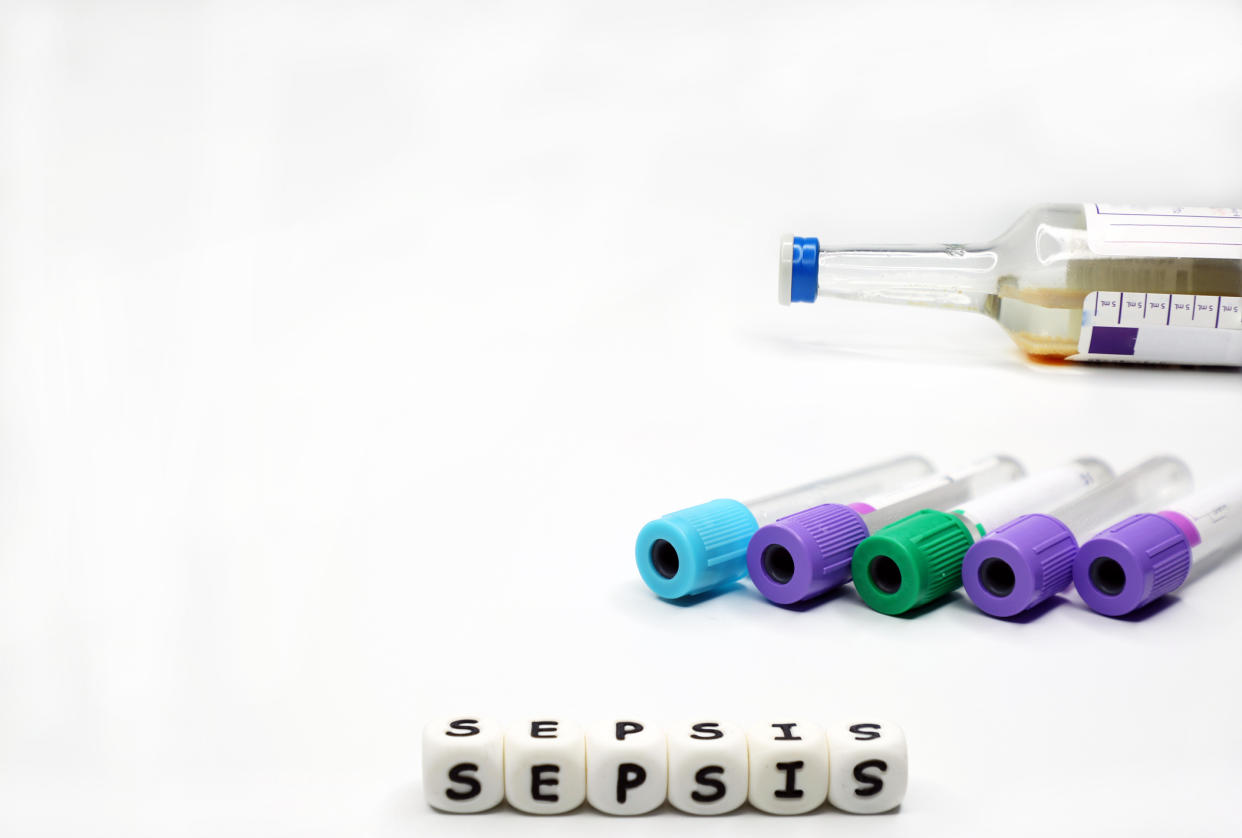What is sepsis? Diversity star Jordan Banjo's newborn son rushed to hospital with condition

Jordan Banjo’s newborn baby was rushed to hospital with suspected sepsis after his wife, Naomi, “felt like something wasn’t right”.
The Diversity star’s five-week-old son, Atreus, was immediately admitted with sepsis and suspected meningitis, Naomi wrote on Instagram. In the post, she listed the symptoms the baby had displayed.
“It’s been the most emotionally draining, frightening week of our lives. We’ve cried a lot, we’ve barely slept, and we’ve discussed the worst .. but we’ve carried each other through possibly one of the most traumatic weeks of our lives,” she added.
Giving an update on Atreus' health, Naomi said that the family is five days in and Atreus has a stable temperature and things are “looking positive”.
Last year, Kate Garraway’s husband Derek Draper was hospitalised twice with sepsis and placed in intensive care.
“When you've got sepsis the big challenge is finding the source of the infection quickly and getting the right antibiotics,” Garraway said in an update of Draper’s condition at the time.
"His kidneys were really badly infected, blocked. The challenge now is to save them. So, that’s where we’ve been for the last three weeks. One kidney is looking really good. We just need to look at the other one."

What is sepsis?
According to the the UK Sepsis Trust sepsis is a serious complication of an infection, that without quick treatment can lead to multiple organ failure and death.
Latest figures estimate that there are about 250,000 cases every year in the UK, and more than 50,000 deaths, that’s around five people in the UK being killed by sepsis every hour.
Around a quarter of all sepsis survivors suffer permanent, life-changing after effects of the condition.

Sepsis risk factors
You may be more at risk of developing sepsis if you have a weak immune system, if you’re already in hospital for a serious illness, if you’ve had recent surgery or an open wound, or if you have a long term health condition.
But though some people are more at risk of others it is important to note that sepsis can affect anyone, regardless of age (in fact, children can be more prone to it than adults), so it’s important to know the signs and symptoms so that you can get treatment as soon as possible.
Sepsis symptoms
According to the UK Sepsis Trust sepsis can initially look like flu, gastroenteritis or a chest infection.
Symptoms to look out for in adults according to the NHS:
a high temperature or a low body temperature
chills and shivering
a fast heartbeat
Call 999 or go to A&E if an adult or an older child has:
a rash that does not fade when you roll a glass over it
difficulty breathing, breathlessness or breathing very fast
blue, grey, pale or blotchy skin, lips or tongue
acting confused, slurred speech or not making sense
Call 999 or go to A&E if baby or young child has these sepsis symptoms:
skin looks mottled, bluish or pale
is very lethargic or difficult to wake
feels abnormally cold to touch
is breathing very fast
has a rash that does not fade when you press it
has a fit or convulsion

Treatment for sepsis
The NHS says that if sepsis is detected early enough and has not affected vital organs yet, it may be possible to treat the infection at home with antibiotics. But if the condition becomes severe or leads to sepsis shock, most will need to be admitted to hospital, with some requiring treatment in an intensive care unit (ICU).
People with severe sepsis often witness problems with their vital organs, which means they are likely to be very ill and the condition can be fatal. However, if sepsis is identified and treated quickly enough, in most cases patients will make a full recovery with no lasting problems.
Sepsis: Read more
Mum who lost all four limbs to sepsis will soon be able to hug her children - Yahoo Life UK, 6-min read
Jason Watkins highlights key sepsis symptoms after daughter’s death – what is the condition? - Yahoo Life UK, 9-min read
A student was left fighting for her life after mistaking sepsis for ‘freshers' flu’ - Yahoo Life UK, 5-min read


